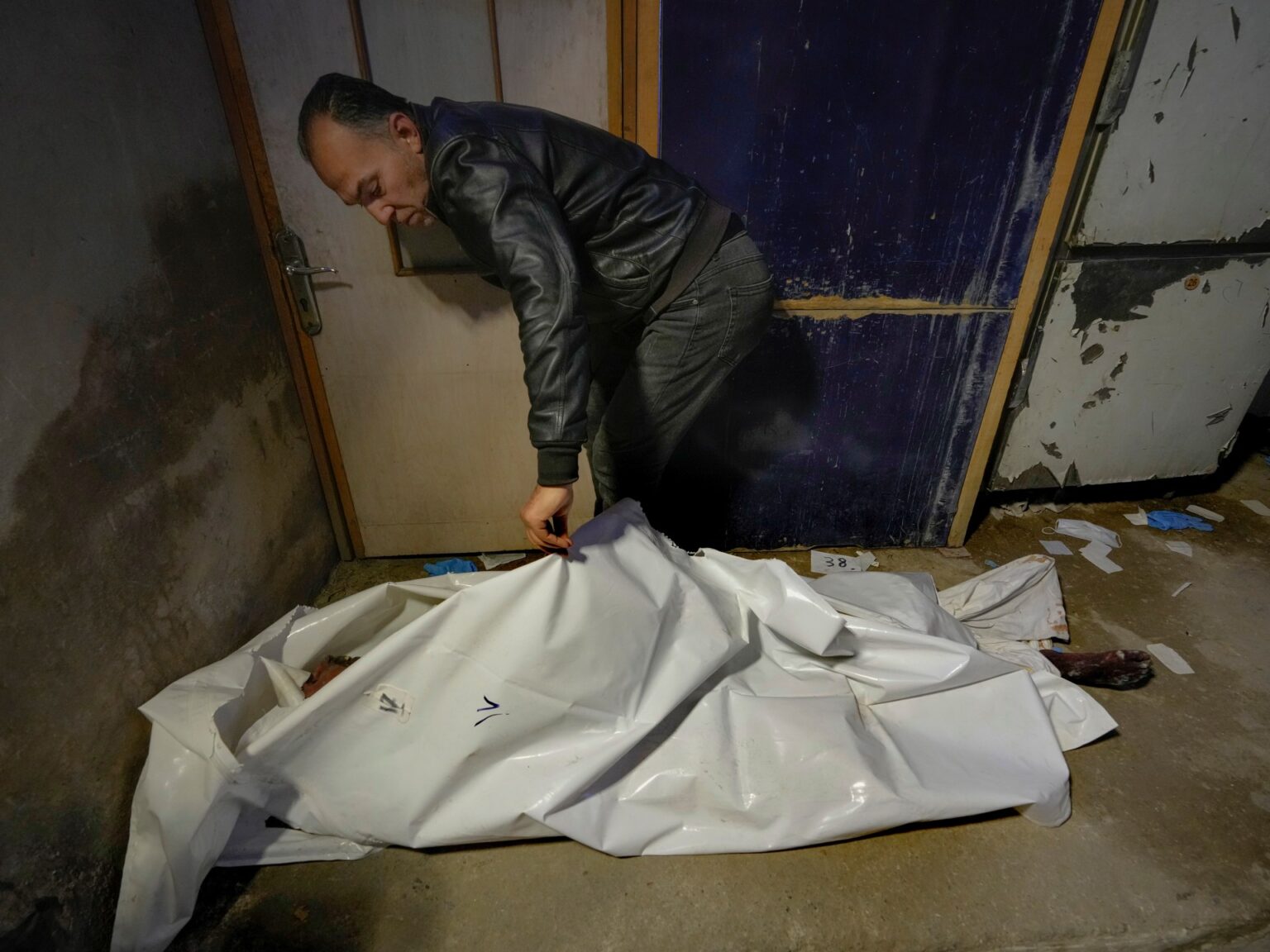Mohammad Chaeeb spoke softly into his phone, telling a relative the grim news: he found his brother at the Al-Mujtahid Hospital morgue.
“I saw him and said my goodbyes,” he said. His gaze lingered on the blackened body of Sami Chaeeb, whose teeth were bared and whose eye sockets were empty. It looked as if he had died screaming. “He doesn’t look normal. He doesn’t even have eyes.”
The dead man was jailed five months ago, disappearing into a dark prison system under the rule of President Bashar al-Assad. His body is just one of many found in Syrian detention centres and prisons since Assad’s government fell last weekend.
Nearby, forensic workers worked rapidly to identify the bodies and hand them over to relatives.
Yasser Qasser, a forensic assistant at the morgue, said they received 40 bodies that morning from the hospital, that were being fingerprinted and having DNA samples taken.
The staff had already identified about eight bodies, he said. “But dozens of families are arriving, and the numbers don’t match.”

Some bodies came from the notorious Sednaya prison, still dressed in prisoner uniforms, Qasser said.
His colleague, Dr Abdallah Youssef, said identifying all of them would take time.
“We understand the suffering of the families, but we are working under immense pressure. The bodies were found in salt rooms, exposed to extreme cold,” he said.
Morgue officials who examined the corpses have seen bullet wounds and marks that appeared to be the result of torture, he added.
An estimated 150,000 people have been jailed or reported missing in Syria since 2011 when peaceful antigovernment protests descended into war. Under al-Assad’s rule, any whiff of dissent could send someone to prison immediately. For years, it was a sentence akin to death, as few ever emerged from the system.
Quoting testimony from freed prisoners and prison officials, Amnesty International has reported that thousands of Syrians were killed in frequent mass executions.
Prisoners were subjected to constant torture, intense beatings and rape. Inmates frequently died from injuries, disease or starvation. Some fell into psychosis and starved themselves, the human rights group said.
Among the bodies at the morgue on Wednesday was Mazen al-Hamada, a Syrian activist who fled to Europe but returned to Syria in 2020 and was imprisoned upon arrival. His mangled corpse was found wrapped in a bloody sheet in Sednaya.
Hilala Meryeh, a 64-year-old Palestinian mother of four, stood in the dingy identification room, bags of bodies all around her. She had just found one of her sons.
Her four boys were arrested by the former Syrian regime in 2013 during a crackdown on the Yarmouk Palestinian refugee camp. She still needed to find three.
“I don’t know where they are,” she said. “Give me my children, search for my children!”
Other Syrians, like Imad Habbal, stood motionless in the morgue, coming to grips with the reality and injustice of their loss.
Habbal gazed at the body of his brother, Diaa Habbal.
“We came yesterday, and we found him dead,” he said. “They killed him. Why? What was his crime? What did he ever do to them? Just because he came back to his country?”
Diaa Habbal, a Syrian who had been living in Saudi Arabia since 2003, returned to Damascus in mid-2024 to visit his family, his brother said. He was arrested by the Syrian military police six months ago on charges of evading military service.
With trembling hands, Imad Habbal lifted the covering, his voice breaking as he wept and spoke to his brother.
“I told you not to come,” he said. “I wish you didn’t come.”
https://www.aljazeera.com/gallery/2024/12/12/at-a-syria-morgue-people-search-for-loved-ones-killed-by-assad-regime?traffic_source=rss


